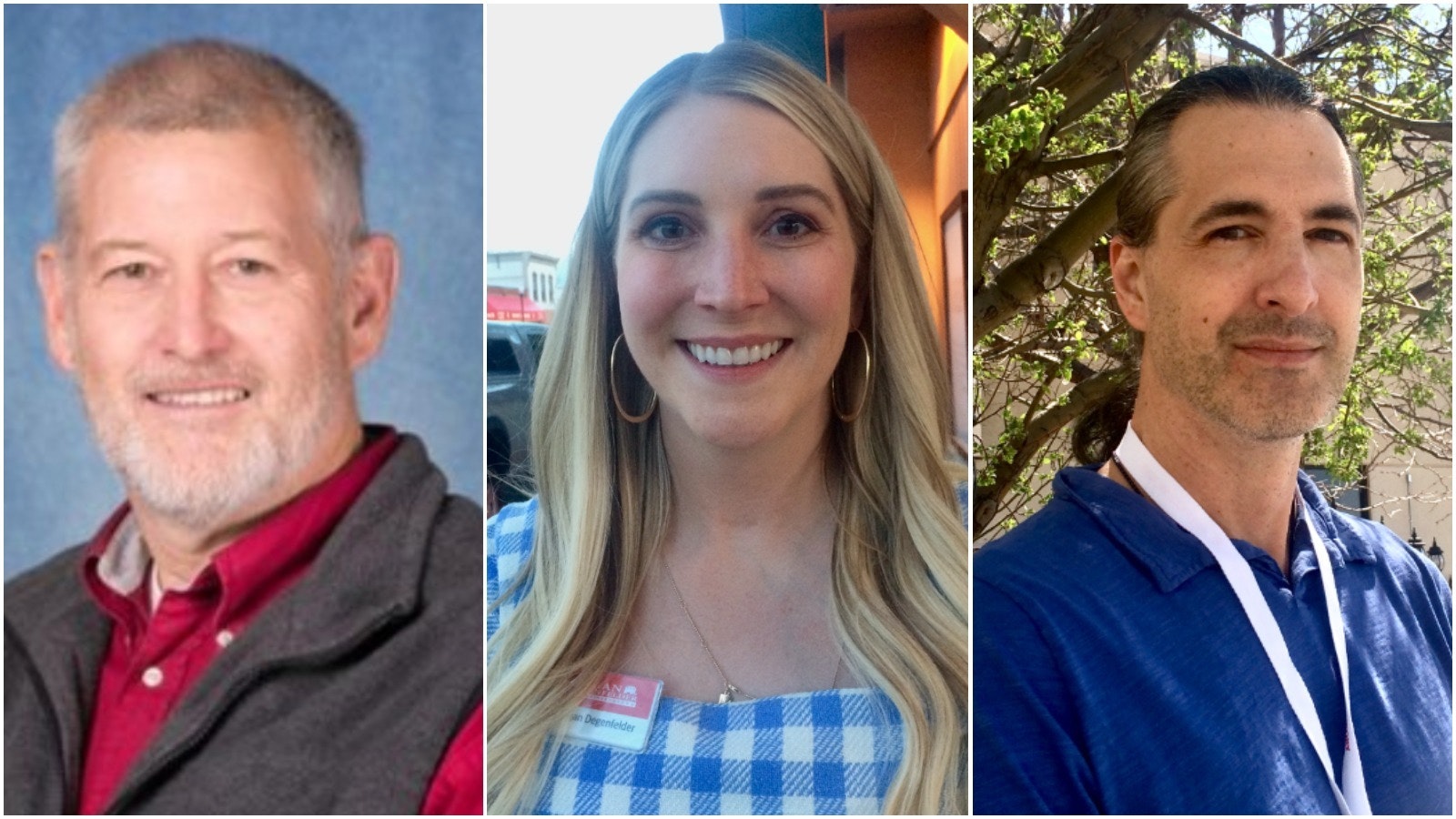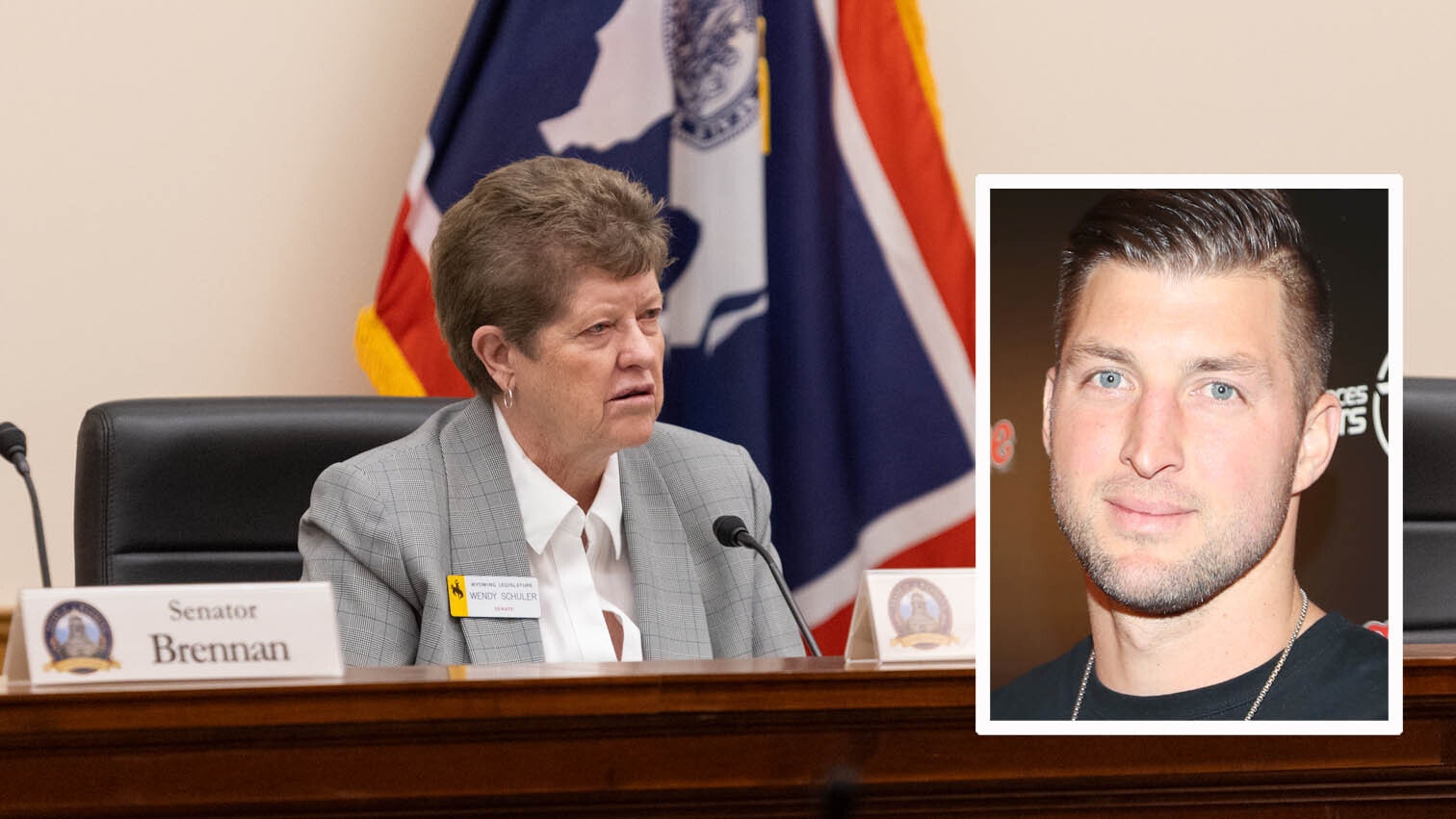The three Republicans who have announced they intend to run for superintendent of public instruction agree on the idea that parents should be given more authority in the classroom.
The three — interim Superintendent Brian Schroeder, Megan Degenfelder and Thomas Kelly — all shared the opinion while speaking with Cowboy State Daily during last weekend’s Republican convention.
Below is a summary of their comments:
Brian Schroeder
Schroeder, the interim superintendent, was chosen by Gov. Mark Gordon in January to finish the term left vacant with the departure of former Superintendent Jillian Balow.
Schroeder, who was nominated for the spot by the Wyoming Republican Party Central Committee, said he has been working at a “fast and furious” pace in order to stay on top of his job duties while actively campaigning.
Since taking the job, Schroeder said his previously held views have only been reinforced. But he also said he has gained an understanding for those with opposing views, becoming “sensitive to how they came” to their viewpoints.
Schroeder said he does not know if critical race theory, an ideology he is adamantly opposed to, is being taught in Wyoming’s classrooms, but said elements of it are being implemented with and without teachers’ choice.
Schroeder said he wants to move away from an over-reliance on the Wyoming Test of Proficiency and Progress for judging student achievement. The test provides an inadequate measure of student literacy, he said, which he considers one of the most important components of education.
Schroeder also said he does not believe recent study results showing Wyoming students had lower standardized test scores than students in Utah, a state that provides less funding per pupil. Wyoming has some of the highest per-pupil funding in the nation at around $15,000 per year.
“It’s a one moment in time conclusion,” he said. “How can we be better than where we’re at? WYTOPP measures a lot but not that.”
Schroeder said the state needs a literacy-specific test to get a more accurate measure of how it is doing on this subject and where it needs to move into the future.
Schroeder said he has been enjoying speaking with teachers throughout the state and learning what they think can be done better.
“The best way to understand is to talk to the school staff,” he said. “They are very capable people.”
Schroeder, who has a background in private schooling, said both private and public schools can learn a lot from each other.
Thomas Kelly
Kelly is a Sheridan resident who is a college professor and chair of the political and military science department at the American Military University, a private, for-profit, online school based in West Virginia. He also served on the City of Sheridan planning commission from 2019-2021 and was a public school teacher for 10 years. He currently has five children in Wyoming public schools.
“I’m easily the most qualified (candidate) for the job,” he said. “I’m far and away more qualified as far as educational experience.”
Kelly is passionate about the issue of parental control and said school administrators in his town of Sheridan have been “tone deaf” to the wishes of parents in recent years.
He said he also supports school vouchers and better support for parents teaching their children in homeschool environments.
Coming from Illinois before he moved to Wyoming, Kelly said the spending he saw there made him realize the importance of fiscal responsibility in schooling.
“It doesn’t matter how much money they have, the administration, the school boards, the state, they always say they’re dead broke and have to raise taxes ,” he said.
He said he is also concerned with the growing use of the terms “equity” and “diversity” in Wyoming classrooms, concepts he said he has seen implemented in Illinois schools over the past 20 years with no positive effects.
“I understand the language, I know how to oppose it, and I’m not confident either of the other candidates know what they’re going up against,” he said.
Kelly said he finds Wyoming school funding to be adequate and does not think that spending more per student translates to better learning.
He said the state is “top-heavy” when it comes to administration staff and wants to encourage school districts to put more of an emphasis on spending in the classroom and less on adding extra positions such as assistants to superintendents.
Kelly said he would cut administrative costs to boost teacher salaries, but he added he does not want pay based on educational qualifications or experience. Instead, he said, teacher pay should be based on merit.
“(The current system) dissuades young, motivated teachers from coming in who are at the bottom of the pay scale,” he said. “It just encourages burnt out teachers who just want to get to retirement to just hang around.”
Kelly said he views the Wyoming Department of Education as an extra branch of the U.S. Department of Education, set up with the primary purpose of obtaining federal funds and exerting influence in the classroom.
“I have no desire to be a powerful bureaucrat,” he said. “This is a civil service, people asked me to do this.”
Megan Degenfelder
Degenfelder is a sixth-generation Wyoming native who is the government and regulatory affairs manager for Morningstar Partners Oil and Gas. She was a chief policy officer for the state Department of Education under Balow from 2017-2019.
Degenfelder has also said the voices of parents are being silenced in classrooms, and she described the state’s public schools as having lost track of Wyoming and American values like innovation and hard work.
“With innovation we have to attack it at a local level,” she said.
Degenfelder said Wyoming’s communities have many wide-ranging needs that can’t be met with a “one size fits all model.”
“What it comes down to rolling up our sleeves and working for local control,” she said.
If elected, Degenfelder said she would attempt to bridge the gap between the Department of Education and the private sector to let individual school districts determine educational needs based on the needs of each community’s workforce. Degenfelder wants schools to partner with local industries and provide better training for certain trades.
Having worked in both the public and private sectors, Degenfelder said she is well equipped to handle these challenges.
“I’ve seen how important a robust workforce is,” she said. “Having career and technical education is what leads to high paying jobs. The more choices we give students for the future the better.”
The three candidates differed slightly on the issue of dealing with the needs of transgender students.
Schroeder said he sees the issue a “social contagion” brought on by the growth of social media. He said many school administrators have told him they consider the presence of social media as a significant problem causing students great distraction in the classroom.
Schroeder said parents need to be a part of their child’s gender identification determination and be involved during the counseling process.
“Teenagers shouldn’t be allowed to make decisions absent of the parents,” he said. “It starts with the parents.”
Kelly is particularly opposed to letting boys who identify as girls play on girls’ athletic teams. On the other hand, he said he does not like how certain people are “vilifying” transgender children. He said transgender issues are a decision for families to make and that being a teenager is hard enough task by itself.
“Kids should be able to identify how they wish, dress how they want to wish,” he said. “But at some point reality has to step in and you can’t let a 6-foot, 6-(inch) biological male on to the girls volleyball team.”
Degenfelder says transgender issues should be dealt with on a community-by-community level with school administration and parents collaborating to decide what fits best for their community.





